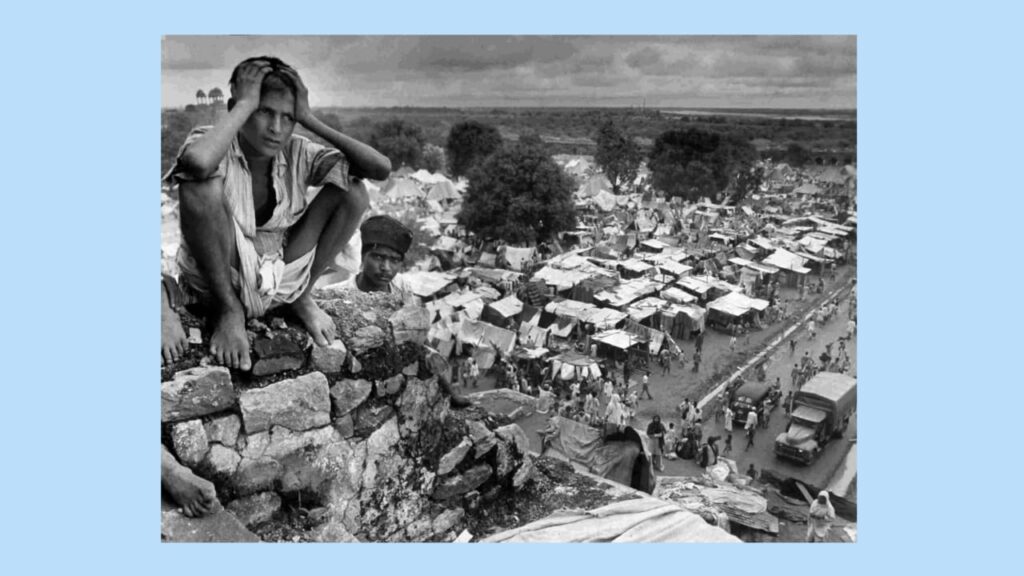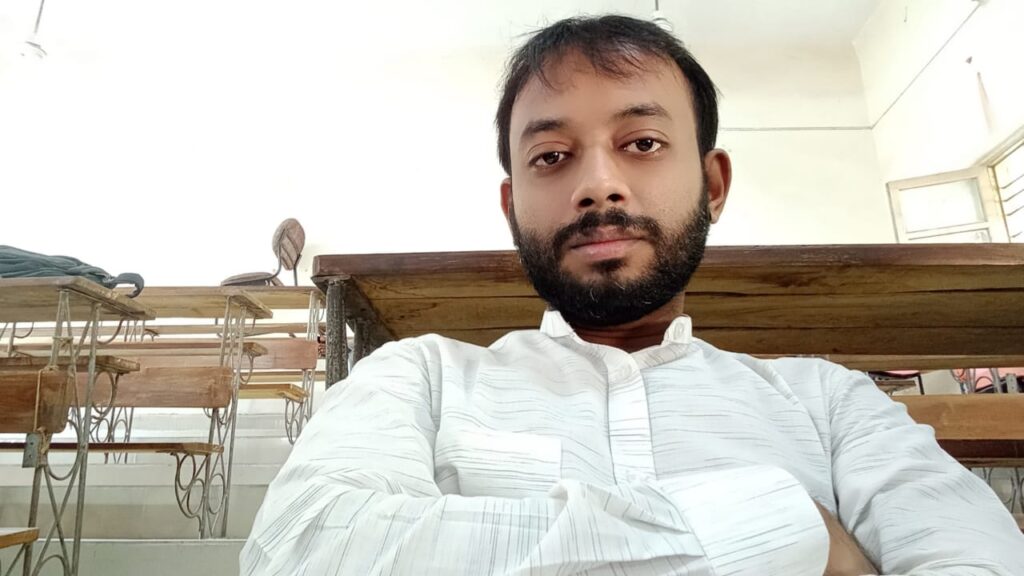
Joyanta Karmoker: The 14th of August, 1947 — for some, the dawn of independence; for millions of others, the beginning of an unending exile. On this day, the Indian subcontinent was cut open by the scalpel of politics, birthing two nations but burying millions of lives in the process. The Partition was not just a red line on a map — it was a red river of blood across history.
Fifteen million souls of Hindus were uprooted. Men, women, and children — people whose ancestors had walked these lands for thousands of years — became homeless overnight. Entire towns vanished. Fields that once echoed with harvest songs stood silent, abandoned. The air was thick with smoke from burning homes, the cries of those lost to the chaos, and the sound of trains arriving not with passengers, but with corpses.
For Hindus, the blow was especially deep. Centuries of history were severed in a single stroke. Pakistan was declared an Islamic Republic — a home for Muslims. But where was the homeland for Hindus? None was offered. None exists to this day.
Among the greatest sufferers were the Bengali Hindus. In East Bengal, the rivers Padma and Meghna bore witness to horrors — women assaulted, children slain, entire families erased in a single night. The survivors who crossed into India often found themselves strangers in a strange land, shunted into refugee camps where bamboo walls could not keep out the monsoon or the memories of their past. Even now, decades later, countless Bengali Hindus remain in legal and cultural limbo — stateless in spirit, their citizenship questioned, their future uncertain.
Not one survivor’s but millions of survivors’ words still echo in history:
“I left my village with only the clothes I wore.
My father’s ashes still lie in the river.
I have not returned, and I never will.”
Hindus fleeing Pakistan were not merely displaced — they were hunted. Trains filled with refugees were waylaid, set aflame, or derailed. Rivers became burial grounds. The fortunate ones who survived the journey faced the brutal reality of starting life anew with nothing — not even the certainty of acceptance.

Writer: Joyanta Karmoker.
Bengali Hindus, and Hindus across the subcontinent, have carried this wound in silence. They speak of Karmafall — the fruit of karma — not as fatalism, but as endurance. Stripped of a homeland, they have become a scattered, cosmopolitan people, bound together by memory, faith, and the shared knowledge of loss.
14th August is not merely a date. It is a scar in the soul of the subcontinent. For some, it marks freedom. For others, it marks the death of their world. To forget it would be to bury not only history, but justice.
And so, every year, as flags rise on one side of the border, memories rise on the other — memories of burning homes, abandoned temples, unmarked graves, and a civilization torn from its roots. This is not the story of a day. It is the story of a people still wandering.
Every moment, Bengali Hindus are in search of Citizenship as they are cosmopolitans!
However, I am ending this article with a few lines by Gurudev Rabindranath Tagore in his famous Bengali Poem from Gitobitan:
তোমার রঙিন পাতায় লিখব প্রাণের কোন্ বারতা।
রঙের তুলি পাব কোথা॥
সে রঙ তো নেই চোখের জলে, আছে কেবল হৃদয়তলে,
প্রকাশ করি কিসের ছলে মনের কথা।
কইতে গেলে রইবে কি তার সরলতা॥